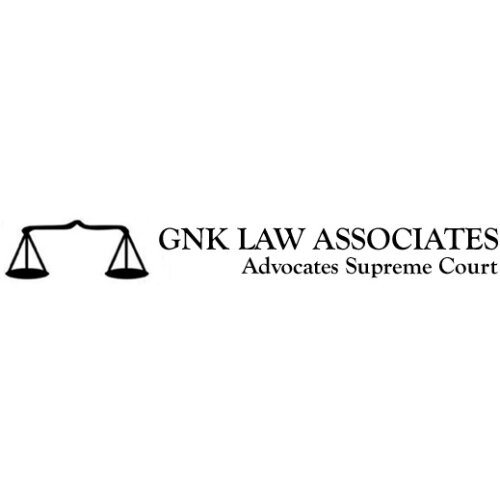Best Mining Law Lawyers in Delhi
Share your needs with us, get contacted by law firms.
Free. Takes 2 min.
List of the best lawyers in Delhi, India
About Mining Law in Delhi, India
Mining Law in Delhi, India, encompasses the legal framework concerning the exploration, extraction, and management of mineral resources within the territory. While Delhi is largely urbanized and does not have significant mineral mining operations like in other states, activities related to sand mining, brick earth extraction, and minor minerals fall under the scope of mining regulations. Mining Law in Delhi is governed primarily by central legislation such as the Mines and Minerals (Development and Regulation) Act, 1957 (MMDR Act), and is supplemented by local rules notified by the Delhi government. The law aims to regulate mineral exploitation, prevent illegal mining, and ensure environmental compliance and sustainable practices.
Why You May Need a Lawyer
There are several situations where individuals and businesses in Delhi may require the support of a legal professional specializing in Mining Law. Common scenarios include:
- Applying for mining leases or permits for minor minerals
- Responding to government notices regarding alleged illegal mining or environmental violations
- Drafting or reviewing contracts related to mining activities, such as joint ventures or land use agreements
- Resolving boundary disputes or encroachments involving mining sites
- Challenging administrative actions or penalties imposed by authorities
- Complying with environmental laws and obtaining necessary clearances
- Advising on transfers, renewals, or cancellations of mining rights
A lawyer can help navigate complex regulatory frameworks, represent your interests before authorities, and provide guidance to avoid legal pitfalls.
Local Laws Overview
In Delhi, mining activities are primarily regulated by central statutes supplemented by local rules. Key aspects include:
- Central Legislation: The MMDR Act, 1957, and allied rules such as the Mineral Concession Rules, 1960, and the Minor Mineral Concession Rules provide the foundation for mineral resource regulation.
- Delhi Minor Mineral Concession Rules: The Delhi government has notified its own rules for granting leases and permits for minor minerals like sand, stone, and brick earth.
- Environmental Regulations: The Environment (Protection) Act, 1986, and notifications of the Ministry of Environment, Forest and Climate Change (MoEFCC) are applicable to mining operations. Every mining project must obtain environmental clearance before commencement.
- Land Use Regulations: Delhi’s urban planning and zoning rules restrict mining activity in specified zones.
- Prohibition of Illegal Mining: Unauthorized mining, including extraction of minor minerals without valid permits, is strictly prohibited and subject to penalties, seizure of equipment, and prosecution.
- Role of Authorities: The Department of Geology and Mining, Delhi, along with local law enforcement and regulatory agencies, oversee the enforcement of mining regulations.
Frequently Asked Questions
What qualifies as mining in Delhi?
Mining in Delhi primarily refers to the extraction of minor minerals such as sand, stone, and brick earth. Major mineral mining is generally not practiced in Delhi due to the absence of such resources.
Do I need a license to extract sand or brick earth for construction in Delhi?
Yes. Extracting sand, brick earth, or any minor minerals for commercial or large-scale use requires a valid lease or permit from the Delhi government’s competent authorities.
How do I apply for a mining permit in Delhi?
Applications must be submitted to the Department of Industries or Geology and Mining in Delhi, along with required documents, maps, and prescribed fees. The application is reviewed for compliance before a lease or permit is granted.
What are the penalties for illegal mining in Delhi?
Illegal mining can attract significant fines, seizure of equipment or vehicles, cancellation of permits, and even imprisonment for grave violations. The authorities are empowered to take stringent action to curb illegal extraction.
Is environmental clearance necessary for mining in Delhi?
Yes. Even minor mineral mining projects must obtain clearance under the Environmental Impact Assessment Notification if they exceed prescribed thresholds or are located near protected areas.
What role does the local municipal authority play in mining activities?
Municipal authorities may regulate land use and issue permissions for excavation, especially for building construction or infrastructure projects. They ensure compliance with local zoning and environmental norms.
Can mining rights be transferred or sold in Delhi?
The transfer of mining rights, leases, or permits is subject to approval by the competent authority. The terms of transfer, eligibility, and limitations are governed by the MMDR Act and local rules.
What should I do if I am accused of illegal mining?
Immediately consult a lawyer specializing in Mining Law. You may need to respond to show cause notices, participate in hearings, and seek legal remedies to protect your rights or challenge wrongful accusations.
How are disputes related to mining resolved in Delhi?
Disputes can be resolved through administrative review, appeal to higher authorities, or litigation in civil courts or special tribunals. Alternative dispute resolution may also be available in certain cases.
Are there restrictions on mining due to environmental or heritage concerns in Delhi?
Yes. Mining is strictly prohibited in protected areas, near historical monuments, or in ecological sensitive zones as notified by the government. Failure to comply can result in severe penalties and prosecution.
Additional Resources
If you are seeking more information or support in the field of Mining Law in Delhi, consider reaching out to the following resources:
- Department of Industries, Government of NCT of Delhi: The primary licensing and regulatory body for mining activities in Delhi.
- Directorate General of Mines Safety (DGMS): Ensures safety, health, and welfare of mining workers.
- Ministry of Mines, Government of India: Responsible for administration and policy formation regarding mines and minerals.
- Delhi State Pollution Control Committee: Regulates environmental aspects of mining activity.
- Bar Council of Delhi: Provides resources to find qualified legal professionals specializing in Mining Law.
- Legal Service Clinics: Universities or NGOs in Delhi may offer free or low-cost legal advice for mining-related issues.
Next Steps
If you have a legal concern relating to Mining Law in Delhi, here’s how you can proceed:
- Identify your specific issue, such as applying for a mining permit, facing a legal notice, or dealing with a dispute.
- Gather all relevant documents, including any communications from authorities, permits, site maps, and contracts.
- Consult a lawyer who is experienced in Mining Law and familiar with both central and Delhi-specific regulations.
- Attend consultations prepared with your questions and documents to get an accurate case assessment.
- Follow the legal advice provided to ensure compliance and avoid further complications or sanctions.
- Stay updated with changes in mining policies and environmental requirements applicable in Delhi.
Engaging a legal expert early can help protect your interests, ensure regulatory compliance, and facilitate a smoother process for any mining-related activities or disputes you are involved in.
Lawzana helps you find the best lawyers and law firms in Delhi through a curated and pre-screened list of qualified legal professionals. Our platform offers rankings and detailed profiles of attorneys and law firms, allowing you to compare based on practice areas, including Mining Law, experience, and client feedback.
Each profile includes a description of the firm's areas of practice, client reviews, team members and partners, year of establishment, spoken languages, office locations, contact information, social media presence, and any published articles or resources. Most firms on our platform speak English and are experienced in both local and international legal matters.
Get a quote from top-rated law firms in Delhi, India — quickly, securely, and without unnecessary hassle.
Disclaimer:
The information provided on this page is for general informational purposes only and does not constitute legal advice. While we strive to ensure the accuracy and relevance of the content, legal information may change over time, and interpretations of the law can vary. You should always consult with a qualified legal professional for advice specific to your situation.
We disclaim all liability for actions taken or not taken based on the content of this page. If you believe any information is incorrect or outdated, please contact us, and we will review and update it where appropriate.












